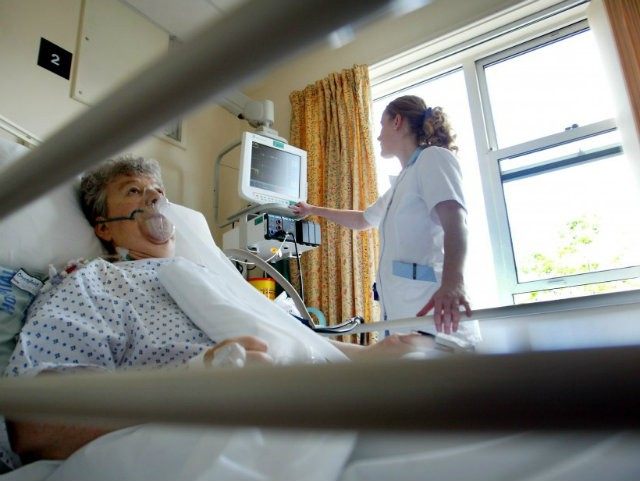The government has introduced new guidelines to clamp down on health tourism just days after UKIP leader Nigel Farage was slammed by his political opponents for raising the subject. The new rules advise hospitals that they have a “legal obligation” to ensure that all patients are entitled to free treatment and will be penalised for failing to charge health tourists.
“Here’s a fact. I’m sure other people will be mortified that I dare to even talk about it,” Farage said during the April 2 televised leaders’ debate. “There are 7,000 diagnoses in this country every year for people who are HIV positive, which is not a good place for any of them to be, I know. But 60 percent of them are not British nationals.
“You can come to Britain from anywhere in the world and get diagnosed with HIV and get the retroviral drugs that cost up to £25,000 per year per patient.
“I know there are some horrible things happening in many parts of the world, but what we need to is put the National Health Service there for British people and families who in many cases have paid into this system for decades.”
Farage’s opponents attacked the comments. Plaid Cymru leader Leanne Woods called them “scaremongering”, saying they were “divisive and dangerous”. Nicola Sturgeon said there wasn’t anything he wouldn’t blame on foreigners. Nick Clegg branded his comments “vile, disgusting.”
But subsequent polling showed that Farage had the public on side. YouGov asked 1,906 adults “Would you support or oppose people coming to live in the UK being banned from receiving treatment on the NHS for a period of five years?” 50 percent said that they would support the ban, against 34 percent who would oppose it. 16 percent didn’t know.
The UKIP leader has put health tourism at the centre of his arguments on the NHS. Also during the leaders’ debates he said “We now have a lot of people who are coming into Britain and are using the health service and are not British residents, that is estimated to cost about £2 billion a year.
“I wonder, would the panel agree with me that actually it needs to be the national health service, and wouldn’t it be a sensible thing if like every other sensible country in the world we said to foreign workers who come to Britain ‘You must have health insurance when you come here’.”
The party leaders, including Prime Minister David Cameron and Deputy PM Nick Clegg ignored the question. But the Department of Health (DoH) has now announced that it hopes to recoup some £500 million a year by 2017-18 from health tourists, and did not dispute the £2 billion figure.
Under current law, only people who have been living continuously in Britain for at least six months are entitled to free hospital care on the NHS. But hospitals assume that patients referred by GPs are entitled, and don’t check papers.
According to The Times, the DoH last week rolled out new guidelines for hospitals dictating that they must crack down on health tourism by asking questions on patients’ eligibility for treatment when a patient presents for a new course of treatment. If there are concerns as to whether a patient qualifies, they may be asked to fill in forms which ask for their passport number and details on how much time they have spent in the UK.
The guidelines warns hospital trusts that they have a “legal obligation” to identify patients who are not entitled to free care, adding that those who fail to crack down on health tourism will be penalised. A Department of Health spokesman confirmed that no-one will be denied urgent treatment while waiting to have their status verified.
A spokesman for Ukip told Breitbart London “The establishment roundly condemned UKIP for our common sense plans on health tourism, but we know the public stand four square behind Nigel Farage on his agenda-setting comments. Now imagine what UKIP voices in our Parliament could achieve.”

COMMENTS
Please let us know if you're having issues with commenting.